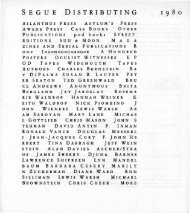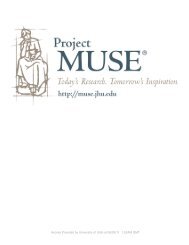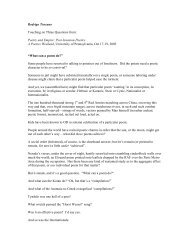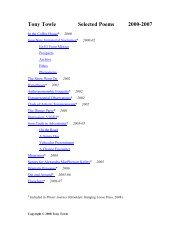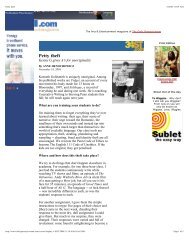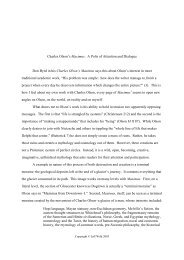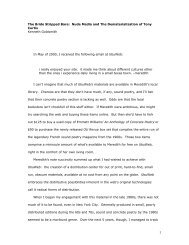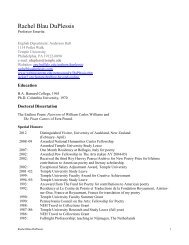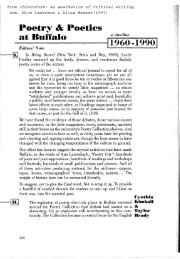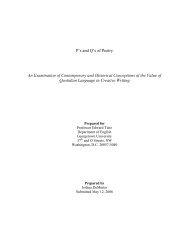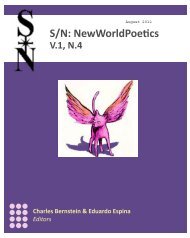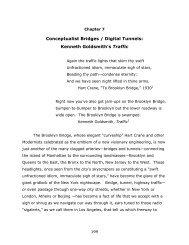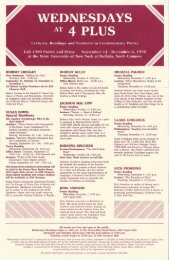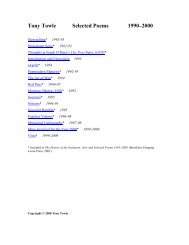Preface - Electronic Poetry Center
Preface - Electronic Poetry Center
Preface - Electronic Poetry Center
You also want an ePaper? Increase the reach of your titles
YUMPU automatically turns print PDFs into web optimized ePapers that Google loves.
From: Hank Lazer<br />
Subject: Re: teaching<br />
There have been, of late, several comments related to issues of teaching poetry.<br />
As I prepare for a course this Fall in Modern American <strong>Poetry</strong>, I’ve found<br />
myself thinking over a few similar issues.<br />
First, I agree with those who have argued for reading aloud in class. Of course.<br />
Over the years, I have collected a good many audio and video tapes. I read<br />
aloud in class; the students read aloud in class (and, presumably, at home). And<br />
I am able to present in class a reading of poems by the poet. (And, at times,<br />
point out that the poet has often read a poem aloud, over time, in different<br />
ways.)<br />
Second issue is, for me, a practical one. Any recommendations for how to<br />
present Zukofsky? I have about two weeks set aside, and cost of books is an<br />
issue. If you were to pick a few things by Z to teach (to graduate students–most<br />
in the MFA program, most of whom will have read nothing by Z, virtually<br />
nothing by Stein or Williams, probably familiar with Eliot, passing<br />
acquaintance maybe with Pound) what would you teach?<br />
Third is a perhaps apocryphal story about Robert Duncan. I heard the story<br />
nearly 25 years ago, and it concerned the way Duncan allegedly began a poetry<br />
(poetry writing?) class at UC Santa Cruz. He said that there would be two basic<br />
rules in the course: 1) they would not be discussing students’ poetry in class; 2)<br />
he would do almost all of the talking. When I frist heard the story, I though,<br />
what an arrogant asshole. I had begun to take a few writing workshops, and<br />
thought ill of Duncan’s anti-democratic rules. Over the years, I can see what he<br />
may have been doing. The workshop methodology has indeed proven to be<br />
trivial and narrow–a kind of auto repair approach to tinkering with the<br />
unambitious and tidy poem. And the students will inevitably form their most<br />
important associations (for discussing poems too) outside of class among<br />
themselves. Duncan could certainly meet individually with students to talk over<br />
their poems. And needless to say, he did have a lot to say.<br />
Fourth has to do with the issue that Rod Smith raised about the importance of<br />
teaching via not-knowing. I offer the following excerpt from Bob Perelman’s<br />
fine book The Trouble with Genius (p. 165):



